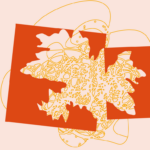17. Workshop des Forschungsschwerpunkts Frauen- und Geschlechtergeschichte der Historisch-Kulturwissenschaftlichen Fakultät der Univ. Wien (Web)
Zeit: 10.11.2023, 09.00-17.00 Uhr
Ort: Univ. Wien, Marietta-Blau-Saal, Universitätsring 1, Hochparterre (bei der Stiege 10), 1010 Wien | Gebäudeplan (PDF)
Programm (PDF)
- 9:00 Uhr: Einführende Worte: Lisa Kirchner und Paula Lange
- 9:15 Uhr: Keynote: Denise Bergold-Caldwell (Innsbruck): Die Kolonialität von Geschlecht: Perspektivierungen auf Subjektivierungen in (post-)kolonialen Ordnungen
10:15 Uhr: Kaffeepause
10:45 Uhr: Panel I: Frauen und Frauenverbände als (post-)koloniale Akteur:innen
- Anastasia Hammerschmied (Wien): Sexuelle Gewalt – Barbarei und Zivilisation. Frauen als Akteurinnen des Völkerrechts im späten 19. Jhd.
- Anaïs Angelo (Wien): Feminising Whiteness, reinventing empire: female colonial administrators in British African colonies in the 1950s
- Fabiana Kutsche (Köln): (Post-)Koloniale Kontinuitäten im Selbstverständnis konservativer Frauenvereine nach 1945: Das Beispiel des Deutsch-Evangelischen Frauenbunds (DEF) in der BRD
- Moderation: Sushila Mesquita (Wien)
12:15 Uhr: Mittagspause
13:45 Uhr: Panel II: Biographische Perspektiven auf (Anti-)Kolonialismus
- Claire Louise Blaser (Zürich): Frieda Hauswirth (1886-1974): Eine feministische Biografie zwischen Anti-Kolonialismus und Kolonialismus Continue reading

 Ringvorlesung: Kulturelle Pluralität in Feminismus sichtbar machen, WiSe 2023/24
Ringvorlesung: Kulturelle Pluralität in Feminismus sichtbar machen, WiSe 2023/24  Alpen-Adria-Univ. Klagenfurt/Celovec, Institut für Slawistik; Elena Messner, Markus Gönitzer und Cristina Beretta
Alpen-Adria-Univ. Klagenfurt/Celovec, Institut für Slawistik; Elena Messner, Markus Gönitzer und Cristina Beretta  Researchproject „A Nordic Queer Revolution? LGBT activism in Denmark, Norway, and Sweden 1948-2018“
Researchproject „A Nordic Queer Revolution? LGBT activism in Denmark, Norway, and Sweden 1948-2018“  Böhlau Verlag und URANIA Graz
Böhlau Verlag und URANIA Graz ![via Website der Veranstaltung [Montage für Salon 21]](https://salon21.univie.ac.at/wp-content/uploads/2023/09/Publikation1-4-150x150.jpg) 12th conference of the international research network „Gender Differences in the History of European Legal Cultures“
12th conference of the international research network „Gender Differences in the History of European Legal Cultures“